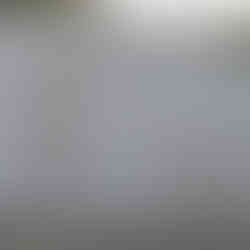"It won't happen here" - remembering, on Srebrenica Memorial Day
- Katie de Bourcier

- Jul 11, 2020
- 4 min read
11 July each year is Srebrenica Memorial Day, when the genocide of over 8000 Bosnian Muslims who had taken shelter in the supposed UN Safe Area around Srebrenica is remembered. That atrocity, committed 25 years ago, was part of the 1992-1995 Balkans conflict that tore apart Bosnia-Hercegovina. Even as the rest of the Balkans became destabilised in the early 1990s, many in Bosnia thought it couldn't happen there, in what they believed was an integrated, "civilised" society, where people of different ethnicities and religions lived side by side, intermarried, seemingly at peace. But stable societies can be knocked off balance and thrown into turmoil by the hatred and unfettered desire for power of a few.
I had the privilege of visiting Bosnia-Hercegovina last October, as part of training programme considering issues of conflict and reconciliation. As part of that trip, I went to Srebrenica; I sat with tears in my eyes listening to survivors' testimonies in the museum of genocide, situated in what had been the UN headquarters there; and I walked, stunned, around the cemetery where many of the 8000 are buried. We also spent time in Sarajevo, which was under siege for four years, and Tuzla, where a bone identification project continues its work to identify remains recovered from unmarked graves.
I remembering feeling anger, deep sorrow, and acute helplessness. I saw too the beauty of the place, learnt a little of its complex and fascinating history, and sensed the commitment of those seeking to work for its good. I was reminded of the fragility of settled, "civilised" societies; and of how easily people can be turned against one another. As I remember, and feel something of the horror echo inside me, I pray that in our country we will renew our efforts to live well together.
I wrote these poems last year as a way of processing what I had seen and felt in Bosnia.
CAULDRON
Here
history has left tracks across the landscape
of humankind;
a meeting place
of empires, trading routes, religions.
a melting pot?
perhaps a cauldron,
a brew stewed and stirred by time,
potent, fragrant, and, we discover, volatile:
the taste and savour of Europe and the East, of mountainous north and Mediterranean south.
But into this heady mix one man throws
A pinch of this.
A handful of that.
And all bubbles and brims and erupts,
ERUPTS.
A pinch of fear.
A handful of labels.
A ladleful of desire for power and control.
And where are found
the values, compassion, heart to balance the brew?
The mixture
bubbles, brims, erupts,
and overflows into horror, hate, war, waste;
souls and bodies agonised.
a nation ripped
and only ugly charred remains are found encrusting the cauldron,
leaving the bitterest taste to overcome.
SILENCED
Silenced
by stories heard,
things seen,
horror imagined.
What can be said in the face of it?
I am dumb, depressed, born down by death that should not be.
What can be said? What can be believed in face of this?
SPEECH
These are the words that stay with me:
White words on black in a small museum, accounts of the unthinkable.
Spoken words in a place of safety that was not safe.
Diplomatic words crafted with compassion, insight, passion and hope.
Thorough words researched, written, recognised.
Words of judgement handed down - necessary, but not sufficient.
But more than words are heard here,
speaking each their truth.
The artefacts:
A small child’s pair of shoes.
A football shirt, bloodied.
A rusting coffee pot.
Awful gifts of victims alive or dead.
The places:
Hills ringing a city besieged,
hills that were home to guns and grenades
mapped out on a wall.
Hills holding and squeezing a village,
a home to fled thousands,
a hope unfulfilled.
The bones:
Betrayed and broken,
buried deep, buried shallow,
unearthed and examined.
Piled high, piled low,
spread out on the metal of mortuary table,
invited to talk.
The graves:
False beauty of
flowing rows and curves,
white stones, mounded earth,
and a photo of line on line on line of green burial shrouds holding far too little.
So what is our speech to be?
What do we say, when faced with this?
FORSAKEN
“Eloi, eloi, lama sabachthani?”
When horror speaks
how can I say
that there is hope in Christ?
When trauma tears at eyes
that daily see within
terrors of a history still lived,
how can I say
that he makes all things new?
When thousands die
for one man’s powerlust,
how dare I even think the word
“forgive”?
What gospel can speak here,
where things unspeakable occurred?
What Christ can offer life
where life is stolen, twisted, beaten and abused?
My Christ upon the cross,
is he enough
for this?
JUSTICE
Justice roars,
rages,
lion-fierce;
no cool serene scale-weighing here
but a primal command
that we attend
to its harrowing hateful absence.
Justice burns,
consumes, compels,
engulfs,
erupts from within;
heat and passion
that soften, smelt, re-make and re-form
the bent and broken angles of this world.
Justice befriends
alongside on the road
through turns and twists
with staunch kindness,
compassion,
conviction,
belief and burden-sharing;
a hopeful friend for the hurting many.
Justice speaks:
voices in variety
storying lives and losses,
agony and abuse,
and drawing dreams of a different way -
picked up by other voices,
swelling, singing, shouting,
advocating and affirming,
turning up the victims’ volume.
Justice pursues,
hangs on,
holds out,
swells and stokes
and breaks its bounds,
throwing its flaming heartfelt cry afar
until an ear hears, an eye sees,
a hand reaches to redress.
Justice persists
until justice is done.















Comments